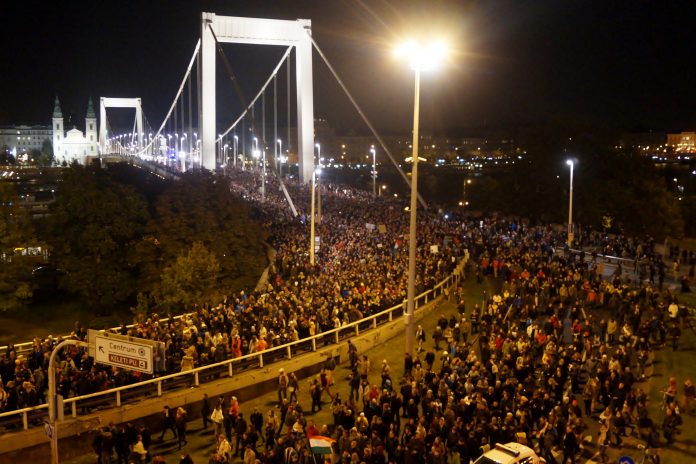The European Parliament should be represented in a formal Council of Ministers’ meeting discussing Article 7 procedures concerning Hungary, MEPs insist.
Following a last-minute invitation by the Romanian Presidency for an informal exchange of views ahead of the General Affairs Council to be held on 9 April, Claude Moraes (S&D, UK), Chair of the Civil Liberties Committee, and Judith Sargentini (Greens/EFA, NL), rapporteur for the EP proposal calling on the Council to determine whether Hungary is at risk of breaching the EU´s founding values, said:
“We regret not being able to accept this invitation, due to unavailability at such a short notice. While we thank the Romanian Presidency for this invitation, we would remind of President’s Tajani letter in which he called for the Parliament to be invited to outline its position to a full meeting of the General Affairs Council where the Article 7(1) TEU procedure concerning Hungary will be discussed and for which a reply is still outstanding. As we already mentioned in previous informal meetings held with the Presidency, to which we have participated in respect of the principle of sincere cooperation, in this procedure, European Parliament, having exercised its right of initiative under the concerned Treaty provision, is to be heard in a Council formal sitting”.
In September 2018, the Chamber requested the Council to assess whether Hungary is posing a systemic threat to the EU’s founding values. Should they determine that such a threat exists, EU member states could initiate the procedure laid down in Article 7 the EU Treaty, which may eventually lead to sanctions, such as the suspension of the Hungary’s voting rights in the Council. Judicial independence, freedom of expression, corruption, rights of minorities, and the situation of migrants and refugees are the main Parliament’s concerns.
“The European Parliament should not be prevented to exercise its full role, as provided by the Treaties. We continue to be convinced that it is essential for the European Parliament to be invited to a formal Council meeting. Such an in-depth exchange of views in a Council meeting is of the highest significance for the rule of law within the EU, and in line with the principle of sincere cooperation between Institutions,” added Moraes and Sargentini.

